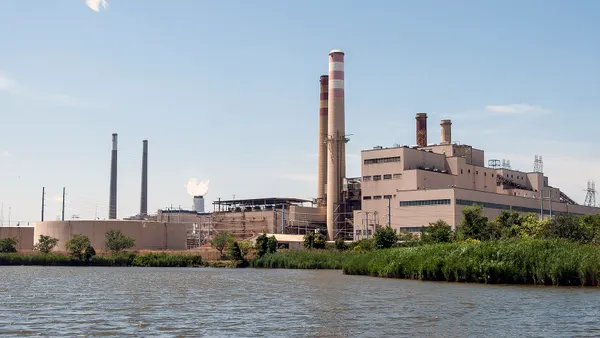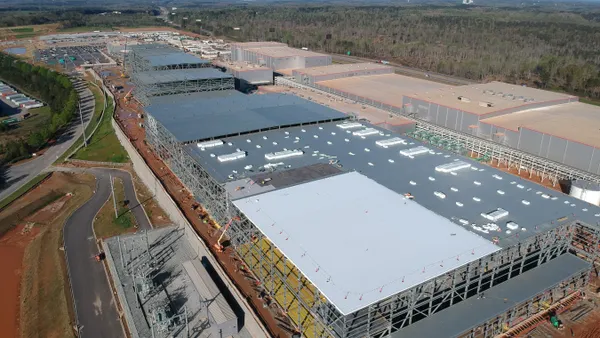Dive Brief:
- A wide range of groups filed briefs with the U.S. Court of Appeals for the District of Columbia Circuit in support of the Clean Power Plan last week, including utilities, clean energy companies and tech giants, EnergyWire reports.
- More than 200 current and former lawmakers, most of them Democrats, have filed an amicus brief arguing the CPP, which aims to cut greenhouse gas emissions from the power sector 32% by 2030, is consistent with the Clean Air Act.
- Among large corporations supporting the rule are: Apple, Amazon, Google and Microsoft, Ikea, Mars Inc. (the candy maker), and Blue Cross and Blue Shield of Massachusetts. A handful of investor-owned utilities are also supporting the rule.
Dive Insight:
While briefs flowing into the court largely represent the positions observers of the case have come to expect, a couple stand out.
Dominion Resources, a utility with plenty of fossil fuel resources, came out in favor of the Clean Power Plan. The utility said the rule provides a "flexible, accommodating compliance framework" and that the rule is "challenging but ultimately manageable for regulated power plants."
While most utilities are opposing the rule, Dominion is not alone in its support. EnergyWire pointed out that Southern California Edison Co. and Pacific Gas and Electric Corp. have also joined in favor of the rule. Utilities supporting the Clean Power Plan have generally argued that the rule represents the direction the utility and power industry is already moving.
The Hill points out that a large group of past and current lawmakers, largely Democrats, support the CPP.
“The rule at issue effectuates the policy Congress established in the CAA because it is consistent with the text, structure, and legislative history of the act,” they told the court. “Most significantly, it reflects Congress’s considered decision to establish a comprehensive regulatory regime that could address all pollutants, both known and unknown,” they argued in their amicus brief.
Amazon, Apple, Google and Microsoft submitted a joint brief, arguing "climate change is a significant global challenge and that strong action from the business community is critical to meeting the serious threat posed by greenhouse gas emissions."
The companies pointed out that last year they used over 10 million MWh of energy, at more than 50 data centers in a dozen states, and "expect this amount to grow as the number of data centers increases."
“These rigorous and compelling briefs are a vivid reminder that Americans are embracing the clean energy future and recognizing the importance of securing a safe climate for our health, economy, and generations to come," Krupp said. "It makes me optimistic about the court battle ahead of us. EDF looks forward to presenting a strong case in defense of the Clean Power Plan.”
In March, the EPA filed a 200-page merit brief defending its proposal to regulate existing power plants, saying climate change is a "monumental threat" and that the agency is within its authority to take action.
“The [Clean Power Plan] will secure critically important reductions in carbon dioxide emissions from what are by far the largest emitters in the United States — fossil-fuel-fired power plants," EPA said. "CO2 and other heat-trapping greenhouse-gas emissions pose a monumental threat to Americans’ health and welfare by driving long-lasting changes in our climate, leading to an array of severe negative effects, which will worsen over time."













